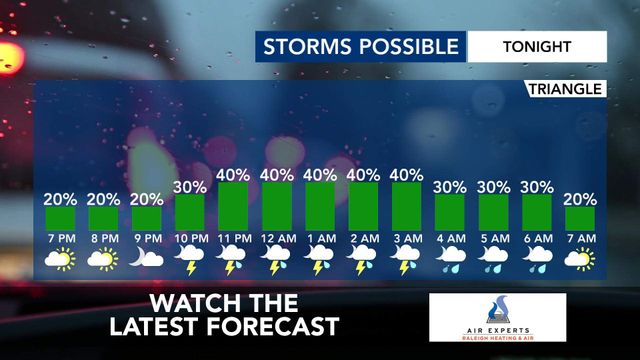Cost of electric vehicles now competitive with gas-powered cars, according to Duke Energy
The price of a owning an electric vehicle is now closer to that of gas powered cars, and experts say the savings not seen on the sticker price could make them even more appealing.
Scot Wingo is the CEO of Raleigh-Durham based "Spiffy," a vehicle maintenance company which now operates in 20 markets across the country. He hopes his large fleet of service vans will soon run just like his own battery-powered Tesla.
"Our vision is to move towards electric vans totally in the next two or three years. They are just not available today," said Wingo.
Wingo’s environmental commitment can be seen in how his employees service customers’ cars.
"When we do a car wash, every wash is on what we call a reclamation mat," explained Wingo.
Compressors inside the van reclaim 100% of the waste water. Old oil from oil changes is also reclaimed and stored within the vans.
Though the vans still run on gas, the equipment inside Spiffy vehicles run on electric power. An "EV" owner since 2014, Wingo understands the potential savings at the end of the year.
"Well over $1,500, and that’s just saved on the gas component," said Wingo.
Because EVs don’t have oil cylinders, Wingo doesn’t need to spend money on oil changes. He also figures he saves times over the course of a year by not driving into and filling up at gas stations.
Duke Energy offers an EV cost calculator to compare gas vs. electric vehicles.
"The electric vehicles you’re seeing on the road coming out by the manufacturers now are much better than they were five or 10 years ago," said Randy Wheeless, a media spokesperson for Duke Energy.
According to Wheeless, when EV owners like Wingo charge up, more than half of it is more likely to come from nuclear, solar and hydroelectric power.
"So if you’re talking about trying to lower your carbon footprint, lower carbon emissions, you know, charging a vehicle at night, you’re probably doing a lot carbon free," said Wheeless.
Wingo says that’s his and his company’s mission. "Our customers care deeply about the environment. So do we," he said.










